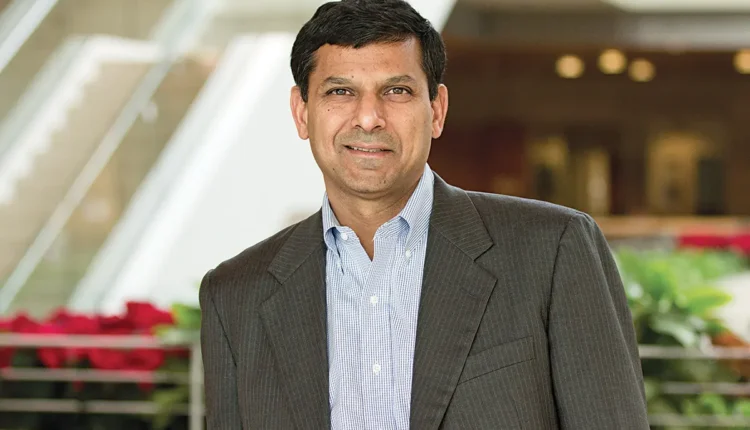In the intricate world of global finance, few names resonate as profoundly as Raghuram Rajan. Born on February 3, 1963, in Bhopal, Madhya Pradesh, Rajan has emerged as a beacon of economic wisdom and foresight. His journey, from the halls of academia to the highest echelons of financial governance, exemplifies a commitment to understanding and improving the world’s financial systems.
Early Life and Academic Prowess of Raghuram Rajan
Raghuram Rajan’s early life was marked by a rich tapestry of experiences that shaped his worldview. Born into a family with a strong academic and diplomatic background, his father, R. Govindarajan, served in the Intelligence Bureau and later in the Research and Analysis Wing (R&AW). This environment fostered in Rajan a curiosity about global affairs and the complexities of international relations.
Raghuram Rajan’s educational journey is a testament to his intellectual rigor. After attending Delhi Public School, R. K. Puram, he pursued a bachelor’s degree in electrical engineering from the Indian Institute of Technology, Delhi, where he graduated as the best all-round student.
Raghuram Rajan’s thirst for knowledge led him to the Indian Institute of Management Ahmedabad, where he earned a Post Graduate Diploma in Management with a gold medal for academic performance. Not one to rest on his laurels, Rajan then ventured to the Massachusetts Institute of Technology’s Sloan School of Management, earning a PhD for his insightful thesis on banking.
A Stalwart in Academia
Raghuram Rajan’s academic career is nothing short of illustrious. Joining the University of Chicago’s Booth School of Business in 1991, he quickly rose through the ranks to become a full professor by 1995.
Raghuram Rajan’s research, characterized by depth and relevance, has extensively covered banking, corporate finance, and international finance. Rajan’s collaboration with Douglas Diamond on the role of banks in the economy is particularly noteworthy, influencing policy and academic thought alike.
Raghuram Rajan’s book “Fault Lines: How Hidden Fractures Still Threaten the World Economy” won the Financial Times/Goldman Sachs Business Book of the Year award in 2010.
The book’s analysis of the financial crisis of 2007-2008 and its foresight into economic vulnerabilities underscored Rajan’s status as a prescient economist. His arguments about income inequality, trade imbalances, and financial system structures provided a roadmap for understanding and mitigating future financial disruptions.
A Voice of Caution and Insight
One of Rajan’s most defining moments came in 2005 at the Federal Reserve’s Jackson Hole conference. Amid widespread optimism about the financial system, Rajan sounded a warning about the growing risks and potential for a crisis. His caution was initially met with skepticism, with notable figures like Lawrence Summers dismissing his concerns.
However, the subsequent financial crisis of 2007-2008 validated Rajan’s warnings, earning him recognition as a voice of reason and foresight in the field of economics.
Leading the Reserve Bank of India
Rajan’s tenure as the 23rd Governor of the Reserve Bank of India (RBI) from September 2013 to September 2016 was marked by significant reforms and a steady hand in turbulent times.
At the RBI, Rajan implemented measures to stabilize the Indian rupee, control inflation, and promote financial inclusion. His policies fostered a more resilient banking sector and positioned India as a robust player in the global economy.
In 2015, Rajan’s influence extended further when he was appointed Vice-Chairman of the Bank for International Settlements. This role underscored his standing in the global financial community and his commitment to fostering international financial stability.
Continuing Impact and Legacy
Raghuram Rajan’s contributions to economics extend beyond his official roles. He is a prolific writer and thinker, with numerous articles and books that continue to shape academic and policy debates. As a regular contributor to Project Syndicate, Rajan’s insights on global economic issues reach a wide audience, influencing thought and policy across the world.
His work with Luigi Zingales, particularly their book “Saving Capitalism from the Capitalists,” highlighted the importance of free financial markets for economic growth. This work, along with his extensive research, positions Rajan as a crucial advocate for economic modernization and financial reform.
Honors and Recognition
Rajan’s achievements have been recognized globally. He received the inaugural Fischer Black Prize in 2003, awarded to the top finance researcher under 40. He has been honored with numerous honorary doctorates and was named one of Time magazine’s ‘100 Most Influential People in the World’ in 2016. These accolades reflect his profound impact on both theoretical and practical aspects of finance.
Also Read:Raj Rajaratnam: From Financial Powerhouse to Redemption Story

